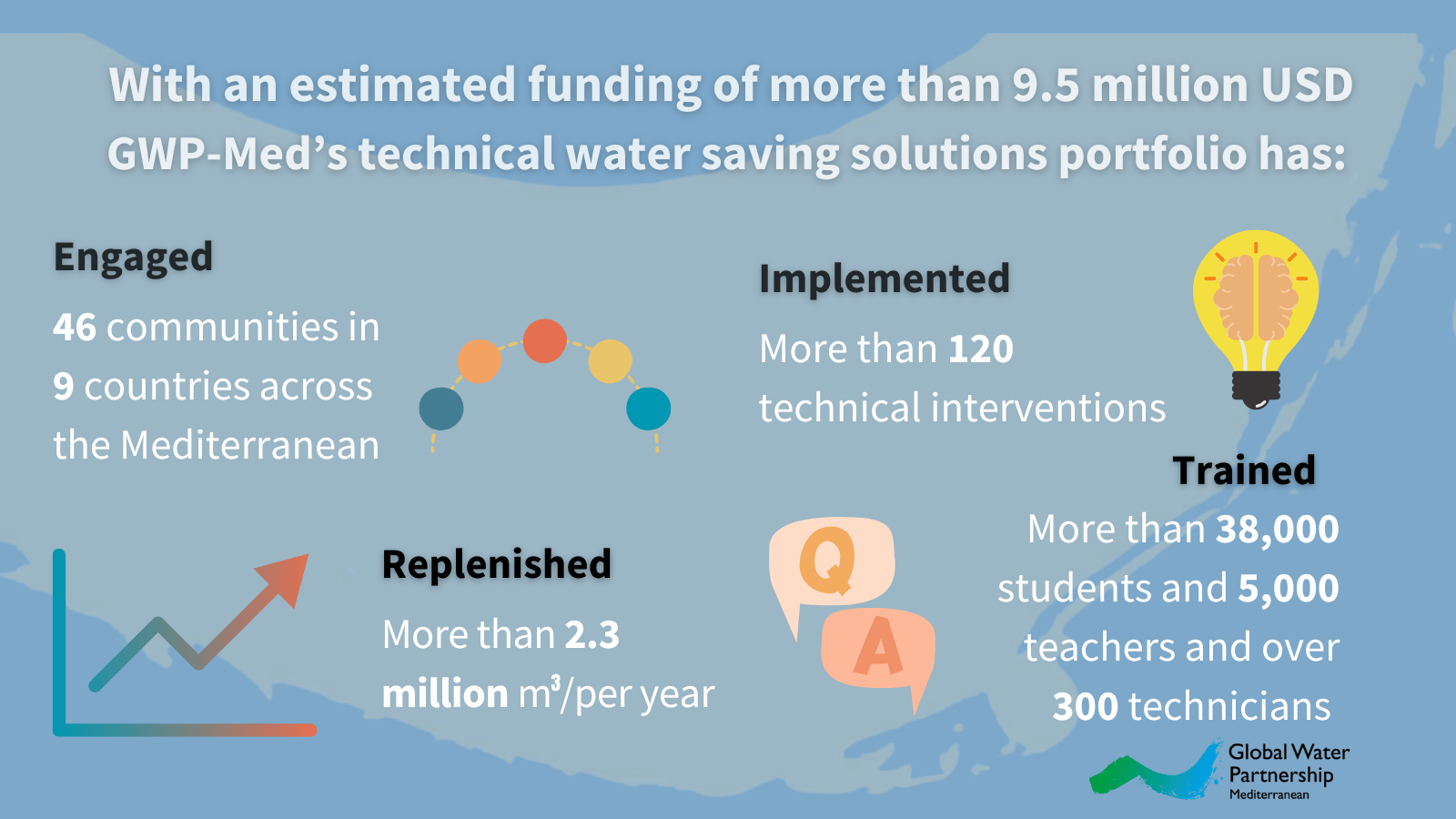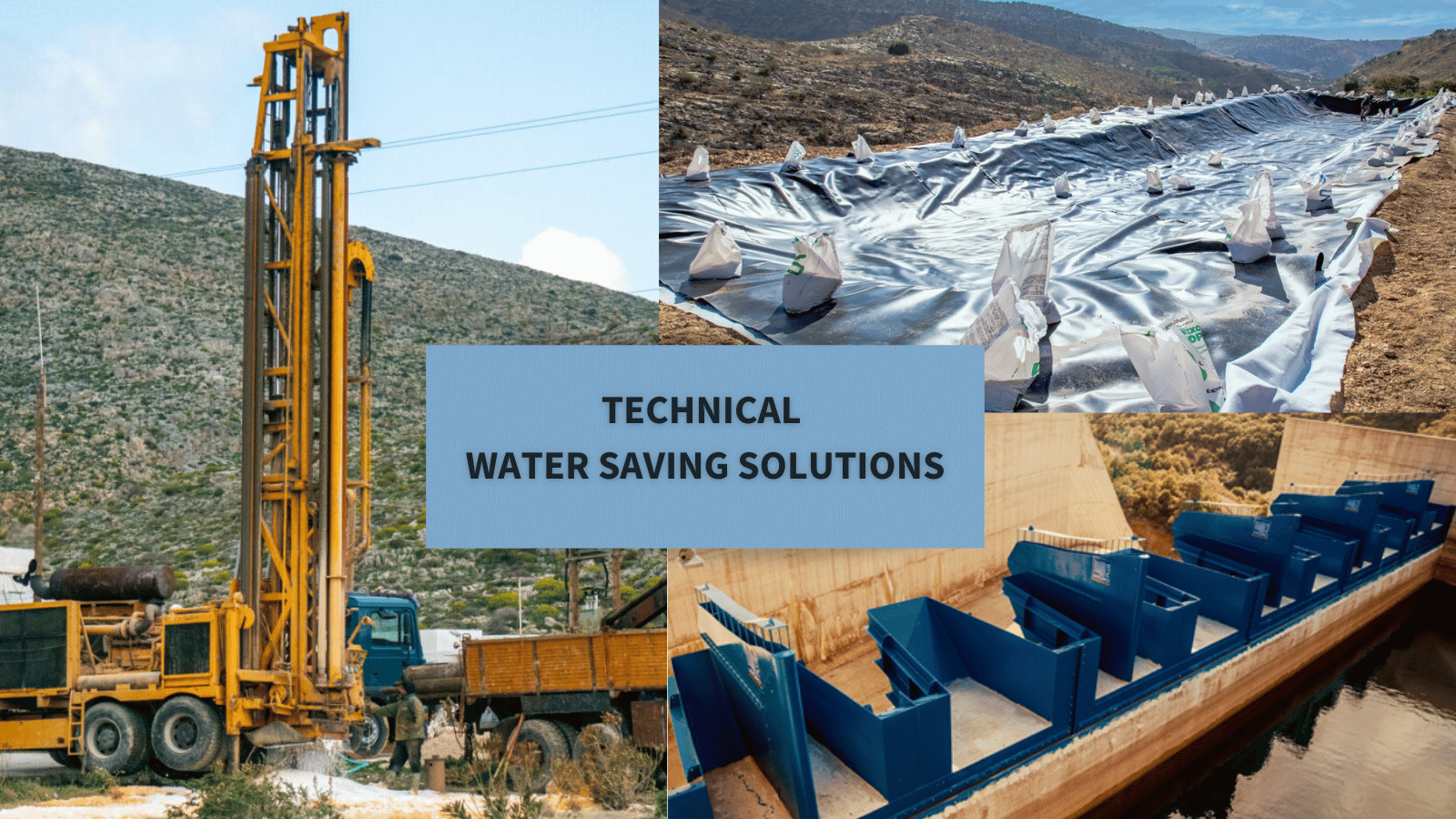Sustainable management of water resources is essential for all forms of life and a key factor for human well-being, food security, healthy ecosystems and economic prosperity. At present, climate change and biodiversity loss combined with socio-economic pressures such as population growth enhance risks to sustainable supply of natural resources and particularly water, threatening the environment, livelihoods, social and economic stability and development. According to all estimates, more than 1.7 billion people live in communities in river basins that are being depleted by overuse, and the UN predicts a 40% shortfall in freshwater resources by 2030 (link to page).
Water management challenges are collective and inherently complex issues that require collaboration, synergies and resources. Water replenishment projects stem from the need to protect business operations from water scarcity and a commitment to protect water resources in the areas they operate, contribute in building climate resilient societies and capacitate communities to adapt to these changing conditions.
GWP-Med has been working with private and public entities for more than 16 years in designing, managing and implementing projects including – but not limited to- water efficiency, water replenishment and WEFE Nexus throughout the Mediterranean region. With a portfolio that spans from Southeastern Europe to the MENA, we are implementing innovative technical solutions in collaboration with local authorities customized to specific local needs.

Implementing customised water solutions together with local communities
GWP-Med has an extensive proven track record of more than 14 years in designing, managing and implementing water management / efficiency / replenishment projects, funded directly by the private sector (each ranging between 200,000 and 1,200,000 €), based on clear metrics of quantifiable benefits.
Such GWP-Med projects are composed of a number of action lines, including (i) technical interventions, mostly in public spaces, (ii)stakeholder engagement and capacity building, (iii) public awareness campaigns and communications, (iv) school education, etc.
Technical interventions are implemented in close collaboration with local authorities (e.g. local municipality, water management authorities, etc.), which are often the direct beneficiaries of the interventions. Depending on the type of intervention, these may include Nature-based Solutions, and may be combined with energy, agricultural and environmental efficiency considerations in a Nexus approach, in order to facilitate integrated and efficient management of natural resources.
Useful links from technical water saving programs:
Zero Drop project Schimatari, Greece: https://gwp.org/en/GWP-Mediterranean/zero-drop/zero-drop-schimatari/
Zero Drop Project Herakleion, Greece: https://gwp.org/en/GWP-Mediterranean/zero-drop/zero-drop-heraklion/
Zero Drop Mission Water, Cyprus: https://gwp.org/en/GWP-Mediterranean/zero-drop/zerodrop-mission-water/
Zero Drop in Folegandros island, Greece: https://gwp.org/en/GWP-Mediterranean/WE-ACT/News-List-Page/20232/turning-air-into-water-in-the-water-scarce-island-of-folegandros/
